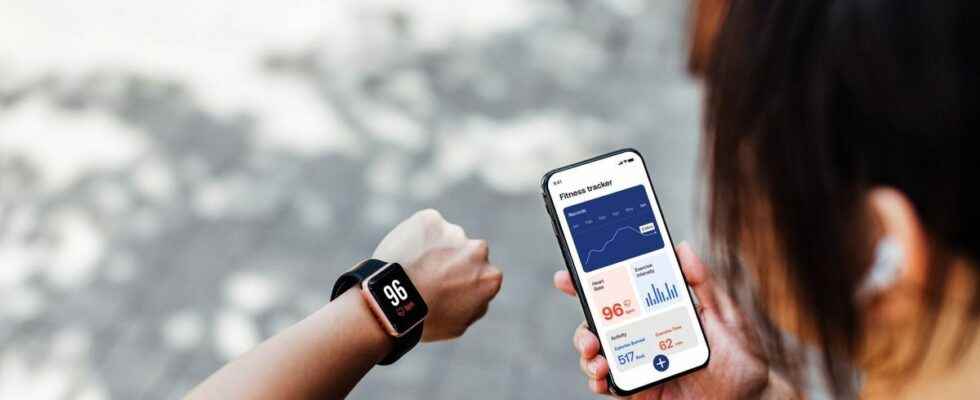Published on
Updated
Reading 3 mins.
Tracking your blood sugar, heart rate or even your sleep in a few minutes and from your smartphone: this is the attractive promise of many health applications. Very often, they are not held or even badly.
A wide and difficult choice of health applications
In recent years, the market for health applications has exploded around the world. Today, hundreds of thousands of medical applications have emerged.
Behind these figures, a wide variety of more or less elaborate devices: from monitoring chronic diseases to anticipating possible relapses of cancer, or even taking medical variables, with or without the help of connected objects.
So there is “a bunch of apps that offer to track heart rate“Thanks to a smartphone, says Nicolas Pagès, intensive care anesthesiologist and founder of Statelia, a platform reimbursed by Social Security, which offers follow-up to patients with heart failure.
“Just put your finger on the phone’s camera and it detects the pulses from the color variation“, he explains to AFP.
If this technology “works very well”, difficult to know if it is the same for other applications, he insists. “Some are totally crazy” and “what is difficult is to find your way around, to differentiate serious applications from those that are not“.
A lack of evaluation of these health applications
Because beautiful promises are often built on wind, he warns. The vast majority of applications downloadable by the general public have in fact not proven their effectiveness.
A study conducted by a French team and published in July in the Journal of Medical Internet Research (JMIR) shed light on this problem. Results ? Of 68 French applications analysed, 64% (i.e. more than two thirds) had not carried out any relevant clinical study before marketing.
In short, only 21% of applications had carried out a randomized study, i.e. an experimental protocol intended to measure their effectiveness. In particular because they have a cost – several tens of thousands of euros – and are not made compulsory.
“There is not the same circuit for an application in medicine as for the drug circuit for example“, regrets Rémi Sabatier, cardiologist at the CHU de Caen, and vice-president of the National Institute of e-health, which seeks to structure this ecosystem.
“There have been apps that offered voltage measurement that were completely bogus“, he notes. Which is “very annoying because people who used them thought they were monitoring their blood pressure“, and were therefore endangered.
“If it’s free, you’re the product”
Another risk is that of securing very sensitive health data. “For the moment, it’s a bit of the wild west“, regrets Vincent Trely, founding president of the Association for the security of health information systems.
Many of the apps available are free. Gold, “if it’s free, you’re the product“, he exposes, with “the sole purpose of collecting mass datato resell them.
However, not all applications should be put in the same basket. There is a real difference between well-being applications and purely medical ones, point out the specialists, even if the border is sometimes tenuous and the legislation leaves it up to everyone to say where they are, “says Rémi Sabatier.
Thus, “doctor-promoted apps” are “reliable“, assures Vincent Trely, but there are very few of them. Scientifically validated, they mostly offer the monitoring of cardiac or chronic pathologies such as diabetes.
Available on prescription, they are reimbursed by health insurance. If they are still little known, they should gain visibility soon with the establishment of a dedicated download platform on the digital Health space.
This change may also open a debate on the purpose of these applications, the vast majority of devices currently aimed at “improving the health of people who are not sick”, notes Nicolas Pagès.
“Nothing prevents people from taking their heart rate for fun, but what costs French society money is chronic diseases“, he notes, pleading for the development of tools for “take better care of these people” and “make them less hospitalized“.
